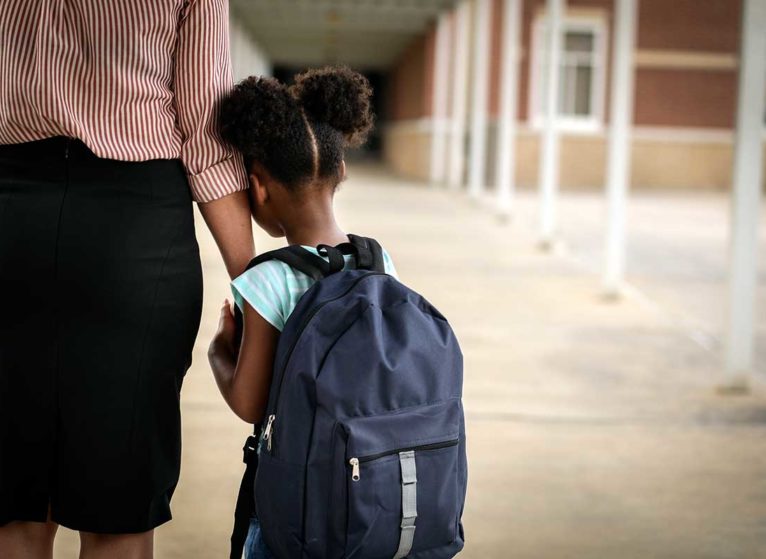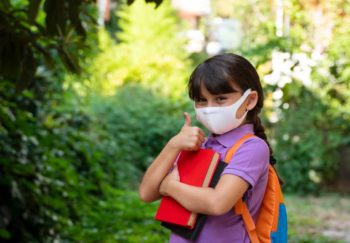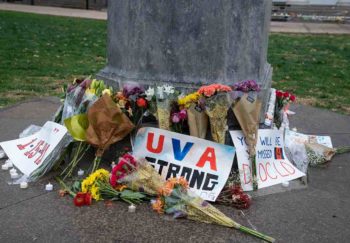It was less than 3 months ago, May 24, 2022, when it happened. Another school shooting in Uvalde, Texas, that killed 19 kids and 2 teachers, wounded 17 others, and traumatized the whole town.
We felt the ripple effects, too. I found myself a couple weeks later, dropping my teenager at her high school, after a dentist appointment. It was so quiet. A cop car parked under the tree was both terrifying and reassuring. I felt tears in my eyes, not wanting to let our kid enter a place that suddenly felt like a warzone waiting to happen.
“What’s wrong, momma?” she asked me.
I told her. For better or worse.
“I’m scared every day,” she said. “We’ve been doing active shooter drills my whole life. I’m always waiting for something to happen.”
How Common Are School Shootings?
When I was a teenager growing up in California, we did earthquake drills. We got to go outside, get out of the classroom, get fresh air. Fire drills weren’t as exciting — no one wanted to roll on the ground. But these weren’t scary exercises. We didn’t see reports of earthquakes and fires destroying whole classrooms on the nightly news. And Columbine hadn’t happened yet.
Source: FBI National Incident-Based Reporting System 2020
Our children, on the other hand, live in a different reality. Mass shootings populate the headlines on traditional media. And social media — which travels with us, wherever we go — delivers scary images and videos of violence, and threats of violence. The landscape seems crowded with it.
The sense that schools are vulnerable and unsafe can start to feel real. Last year, threats of attacks against Charlottesville and Albemarle high schools happened so often that every time we got a call or email from the school, we thought, “This is it.” My teens heard about the threats from other kids or Instagram or Discord before any official announcements from school officials.
It feels like our kids are getting assaulted by fear, if not by actual weapons.
The True Odds of a School Shooting
But this perception is skewed, according to Dewey G. Cornell, PhD, UVA education professor. A leading expert in school shootings who directs the Youth Violence Project, Cornell tells me that, in reality, “Schools are the SAFEST place you can send your child to protect them from homicide. The news attention on school shootings has generated an exaggerated perception that schools are dangerous places.”
But that makes the fear more convincing. Haley Stephens, PhD, a teen psychologist at UVA Health, underscores this. “We know that it’s unlikely — school shootings are rare and random. We can’t predict them or prevent them, which is why they are so scary.”
Responding to a Mass Casualty Event at a School
Facts About Mass Shootings in K-12 Schools
Talking to Children About Violence: Tips for Parents and Teachers
How to Help Kids (& You) Feel Less Afraid
The first thing we can do, Stephens suggests, is to listen to our kids and validate their fears. “School shootings happen. It makes sense to feel afraid.”
She talks about her own heightened concern dropping her toddlers off at daycare. “A little bit of apprehension is going to be normal,” she says. “It sometimes occurs to me that that could be dangerous, whereas it never used to.”
Stop the Anxiety Cycle
The second step? “Keep going to school.” Doing the thing you’re afraid of, Stephens explains, interrupts ‘the anxiety cycle.’
Help Prevent Another School Shooting
See the steps you can take.
When anxious, people “tend to overestimate the likelihood of something bad happening. This increases anxiety. And when you're anxious, you then overestimate.” Stephens explains that, to stop this cycle, we have to do the thing we’re scared to do. “As kids go to school, they will get used to being at school.” They’ll find it less anxiety-provoking over time.
Set Limits on News
Finally, Stephens reinforces familiar advice. “It's important to set time limits,” on your news and media consumption. “It's important to limit how you get news, to just check a few credible news sources.”
When we set limits for ourselves, we set a great example for children. And it helps everyone avoid cycles of anxiety and fear.
As Dewey confirms, too much media can distort the actual level of danger you’re in. “After a rare shark attack, everyone is afraid of the ocean, too.”
Teaching your children to fact-check what they see and hear will help them throughout their lives.


